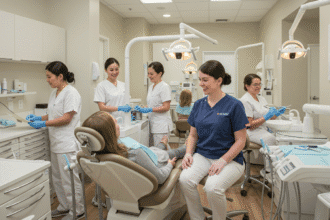Each year, more than 40,000 Americans are diagnosed with pancreatic cancer and 95 percent die within 12 months. Many victims have been celebrities such as Steve Jobs, Patrick Swayze, Jack Benny and Michael Landon.
Because survival is limited, and treatment options are few and often ineffective, patients and their families often regard pancreatic cancer as a death sentence. Too often the disease also brings hopelessness and despair.
Each year, more than 40,000 Americans are diagnosed with pancreatic cancer and 95 percent die within 12 months. Many victims have been celebrities such as Steve Jobs, Patrick Swayze, Jack Benny and Michael Landon.
Because survival is limited, and treatment options are few and often ineffective, patients and their families often regard pancreatic cancer as a death sentence. Too often the disease also brings hopelessness and despair.
I am a two-time survivor of pancreatic adenocarcinoma. Surviving a second bout is rare, and no statistics are kept. I have ridden the emotional rollercoaster frequently encountered over the long course of treatments needed to address this and other complex cancers. Some treatments may not work and require change and test results may suggest worsening disease or reoccurrence of life-threatening cancer after it seems that recovery is likely. All this severely tests the emotional equilibrium of patients and loved ones. It takes tremendous effort to avoid lapsing into a pattern of negativity and despair that can detract from quality of life of patients and their families and limit the effectiveness of their support network.
In my cancer fight, I made a deliberate, difficult decision to stay upbeat. This was a life-altering choice amidst my diagnosis and all the brutal treatment, including two major surgeries—one more complex than a heart transplant—plus experimental radiation, conventional radiation and chemotherapy. I consciously sought to avoid emotional devastation and its attendant poor quality of life for my loved ones, because I realized I needed their support to survive. The truth is that each one of us has problems of one type or other, and patients who persist in complaining will ultimately wear out the good intentions of those around them, thereby decimating the ranks of their support group.
My cancer experience began at the start of a long-anticipated summer weekend: “Your face and neck and whites of your eyes are all yellow,” my wife and son said to me as we stopped for lunch. Medical testing that evening and continuing over the coming days suggested the terrifying possibility of pancreatic cancer. Thirty years earlier, my mother died of this disease. I started to panic when my wife of 36 years took me by the shoulders, looked me straight in the eyes, and firmly said, “Steven, we’ve already been through so much in life, the most important thing is to be as positive as we can, and together we’ll get through this with grace.” Her words of encouragement could not quell my deepest immediate fears.
During deep reflection before the definitive diagnostic test, I confronted an emotional dilemma. Facing a mortal cancer threat, it would have been easy to ask, “Why me?” and enter denial or depression or simply give up. Many cancer patients take this negative tack, turning inward and limiting contact with friends and relatives. In my view, this approach leaves people thinking the worst. If patients project discomfort and doubt, it becomes difficult for relatives and friends to offer comfort and support, because they themselves become uncomfortable and hesitant to say or do the wrong thing.
In contrast, in spite of likely lethal disease, I consciously decided to heed my wife’s advice and turned my attitude around, both for my own sake and for hers. In weighing my decision, I also considered our two adult children, my wife’s elderly parents and our friends and relatives whose concern for my health and well-being would become a focus of activity and likely source of emotional support.
The dreaded diagnosis of pancreatic adenocarcinoma came the next day. I knew my wife had to be strong to keep me going and also to communicate my status to others. In order make this possible, I first had to be strong for her. We both needed all the positive energy we could muster, and it had to start from within me. If I radiated fearfulness and pessimism, it would be impossible for her to cope, and both she and others in my support network would become uneasy and more tentative.
Between my initial cancer diagnosis and the Whipple surgery—a possible life-saving procedure for some patients with pancreatic cancer—my wife and I spent many hours discussing plans for informing and dealing with family, friends and relatives. Because the Whipple surgery—in spite of its complexity and long recovery—provided hope for a cure, we decided to slant our feelings in the most positive way while being truthful and not projecting false hope or illusion. We also used CaringBridge.org—a blog for seriously ill patients—to communicate with friends and relatives. All this planning provided a sense of emotional control that emerged gradually over time. It centered around the notion that even though I could not master all the events swirling around me, I definitely could control—or deeply impact—my emotional and, in some cases, my physical reactions to many events. I call this the “power of choice,” and I believe it is a conscious choice that patients can make to help empower them in facing life-threatening illness.
My positive attitude was severely tested when, nearly three years after the Whipple surgery to remove my pancreatic tumor, routine testing showed cancer spread to my liver. Because pancreatic cancer normally spreads rapidly from the liver, a liver metastasis confers extreme doubt of survival. My doctors thus recommended palliative care simply to alleviate pain and suffering. I responded by requesting bold, aggressive, decisive and rapid treatment to save my life. This meant tests to detect cancer spread beyond my liver and, if no spread was detected, liver surgery to remove the tumor. After deliberation, they agreed to my suggested course of action.
Today, more than eight years after first diagnosed with pancreatic cancer and more than five years after liver surgery for the metastasis, I am in excellent health and lead an entirely normal life. I am thankful I made the conscious decision to stay positive throughout my illness and that I did this early in the process. Looking back, I realize I made a choice to be a survivor rather than a victim. I am aware that cancer often has have claimed the lives of many with a positive attitude and that staying upbeat itself is not likely to fully substitute for excellent medical care. But I can confidently say that my positive attitude helped spare my emotional life and that of my family.
Sending all my positive energy your way,
Steven Lewis









